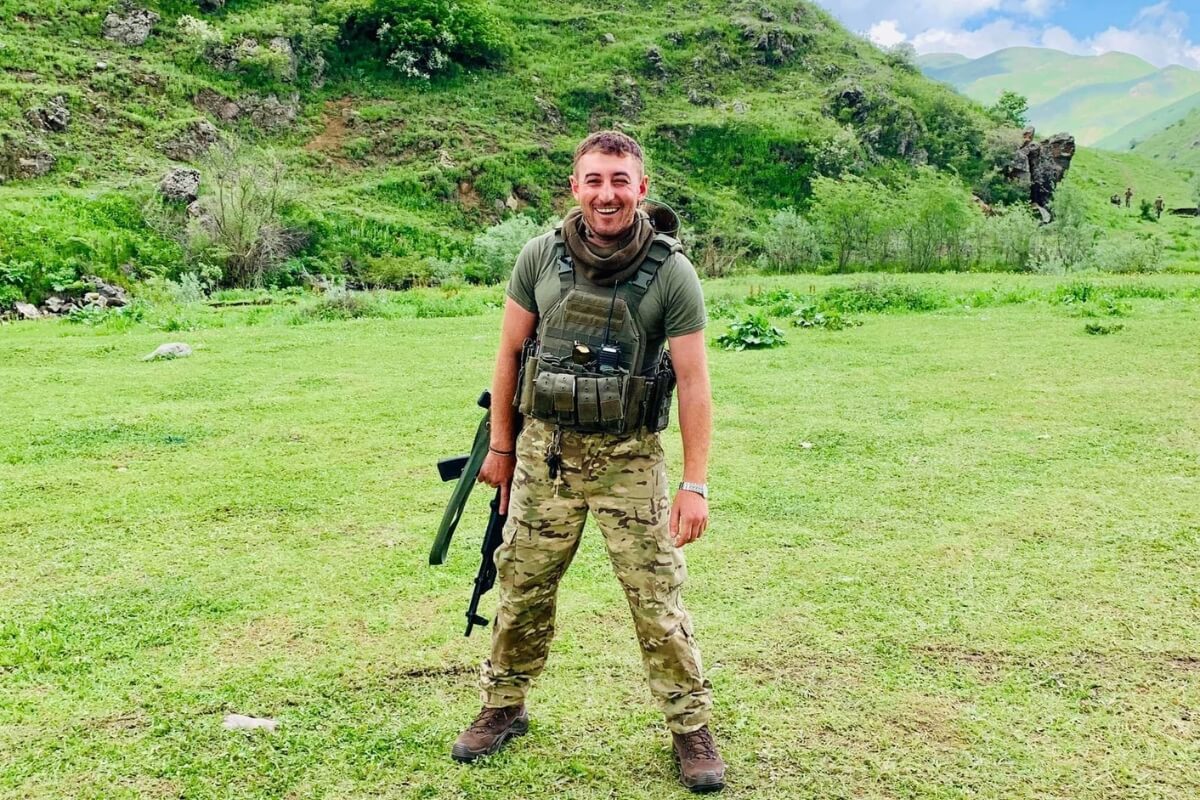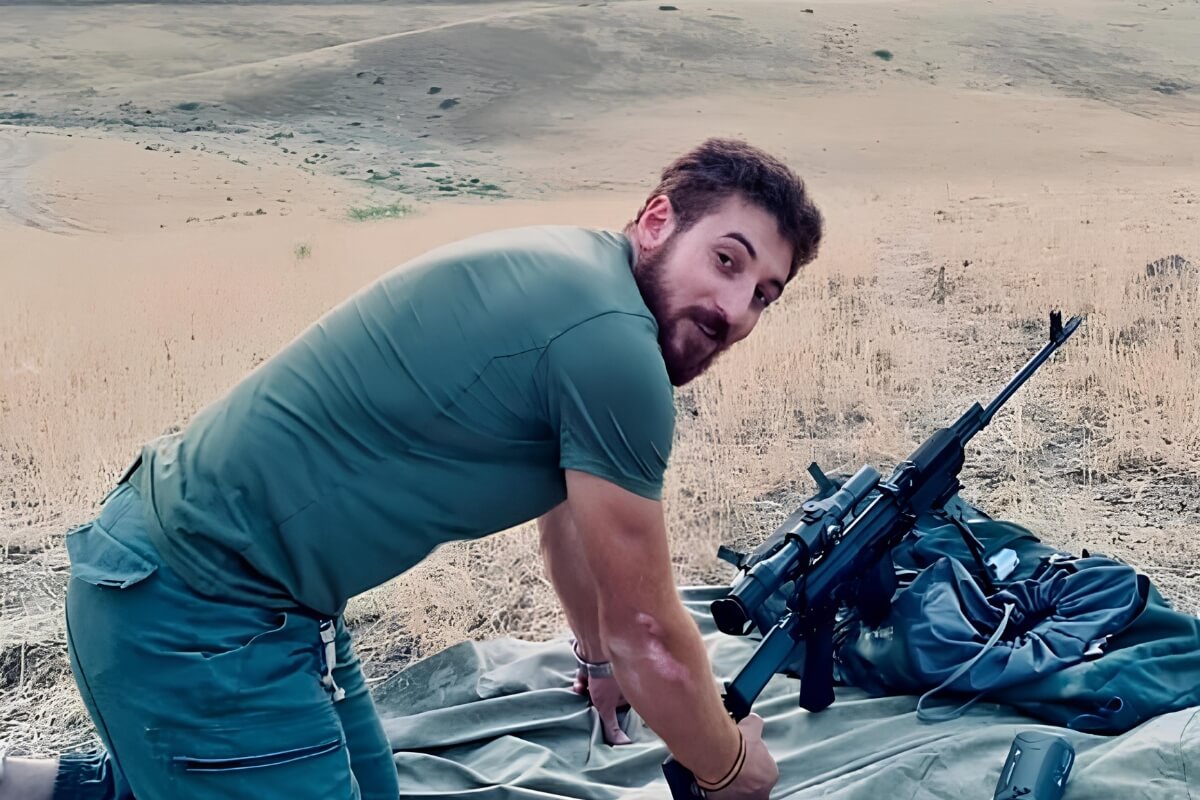My Road
22.05.2024
5 min read
Repat Story
Fear of losing the homeland as a reason for repatriation
-webp(85)-o(jpg).webp?token=25f13e30e033048fc1e34e4691577db1)
The village of Tsovinar in the Gegharkunik region, Madrid, then transit Yerevan-Madrid-Yerevan, well, and the final point in this long journey of self-discovery, finding one's place and purpose, Azatazen: such is the geography of Nagash Bagdasaryan's return home.
According to the tradition that prevailed in rural areas in the 1990s-2000s, Nagash's father also left his native village of Tsovinar to work in Russia, then in Germany, and after settling in Spain, he brought his family with him. Nagash, the protagonist of this story, was 14 at the time: a bright adolescent period, a new country with plenty of opportunities that he was happy and enjoyed together with his brother and sister, went to school, learned Spanish, even spoke it at home, until his father caught him and two other children doing so. Speaking in a non-native language became a red flag for the father: a week later, the family was in Armenia.
“Although I have lived in the diaspora for a long time, I know Armenia well because I spent my student years here,” Nagash says.
After completing his higher education, he joins his brother, who by that time had returned to Madrid. But he often visited the homeland: his longing for Armenia reached its emotional peak. Since 2016, Nagash has been participating in VOMA (Art of Survival) trainings whenever he comes to Armenia on vacation. After the events of the April war, he decides - at the first opportunity - to permanently return to Armenia and not be dependent on foreign countries. He requalifies, starts working in IT, and plans to move to Armenia in 2023.

But Saturday came before Friday: the 2020 war began on Nagash's birthday. In the morning, he was already with friends in Armenia. After the war, where, as he believes, they were not allowed to fight to the end (he and his friends were armed in Karvachar), he returns to Madrid to ask for permission to work online from Armenia. Not getting approval, he resigns from his job and moves here, receives a job offer from Picsart, and finally settles in Yerevan.
Life, war, and subsequent events preempted Nagash's plans to finally move to the homeland by two years.
"Armenia is one of the worst countries in the world, Yerevan is one of the most disorderly cities, I didn't aspire to come here for a long time, I liked life in Spain, you need to have a conscious decision for repatriation," Nagash exclaims, as if pouring boiling water on himself.
My question does not lag: “A decision in the name of?”
"In the name of yourself, first and foremost. The question is how you perceive your life: as a means to serve a cause or to simply live it cool?! In my deep conviction, Armenians should have a different approach to their future: we must take responsibility for our statehood, for our heritage. Perhaps it sounds cynical, but people overestimate their lives, viewing it as an end in itself.
An Armenian's life should be a means to lift the country out of this situation. It should be our responsibility to our past and to the future. And this message is not only for Armenians living in Armenia but also for those in the diaspora. Without Armenia, there is no diaspora. Moreover, the traditional diaspora has exhausted itself, and the new one's path is an absolute failure. You don't have to be a hero to live here, not even participation in war is heroism; I see life in the homeland as a duty. Everyone who leaves takes material and immaterial values from here. Those living in Armenia are sometimes forced to safeguard them for those who leave. The balance of justice is disrupted. But it seems that the generation is growing that wants to take on this responsibility," says Nagash.
He admits that he did not have patriotic feelings until 2014, until he started attending trainings, being involved, and understanding that Artsakh was under threat, the country's security was under threat, the future was under threat. And in general - the possibility of having a homeland was under threat.
"My life is divided into two periods: before 2016 and after. The April war began and security issues became important to me too. I didn't serve, but I started attending VOMA trainings. After returning to Madrid, I attended the trainings every year, started exploring military affairs, training. I realized that the security issue of Armenia was the point that awakened patriotic feelings in me, the desire, and the decision to return home. I had to participate in all of this from Armenia," he continues.
After the war, Nagash Bagdasaryan and his like-minded fellows clearly realized: they needed to train, prepare, but there was nowhere to shoot. They found a territory and began building the largest civilian shooting range in Armenia. Alongside training, the question arose about expanding the activities of the shooting range, involving people, and educating them.
Nagash believes that everyone should know how to use weapons. Azatazen serves these goals, welcoming all who are interested and providing training.

"Strangely enough, in Armenia, which is constantly under military tension, the topic of weapons has always been closed. With the start of Azatazen's activities, it gained public resonance. The necessity of knowing how to use weapons became obvious to many. Our shooting range attracts a large number of both those deeply involved in military affairs and those who train and perhaps consider shooting as a sport. We must be armed and prepared, and our spirits strengthen in the process. Azatazen also conducts educational programs, prepares and administers exams for those who intend to acquire weapons," says Nagash Bagdasaryan.
As a co-founder, he is also the executive director of Azatazen. The long, intermittent journey home seems to have reached its final point. Azatazen has become home for Nagash: on weekdays, he works as the organization's leader, and on weekends, he trains himself and others.
"The security issue of Armenia is not just a problem for the armed forces; it is everyone's problem. It should be a top priority for Armenia and especially for the diaspora. Could it become a compelling argument for repatriation? Yes, it could, it should!"
The interview was conducted by Nareh Bedzhanyan
-
Armenian by Choice
-webp(85)-o(jpg).webp?token=67c1ef9733155840058be1c3cf71a754) 19.12.20248 min readThe Golden Vine House: A Crossroads of Past and Present, Armenian and Basque
19.12.20248 min readThe Golden Vine House: A Crossroads of Past and Present, Armenian and Basque

-webp(85)-o(jpg).webp?token=b1cb111a56e1834ffd8f0229030f8815)
-webp(85)-o(jpg).webp?token=35bc085be51a8c3206a26e1725b41703)
-webp(85)-o(jpg).webp?token=7850fc34cc9cf28cd5843af5cf1f9ea4)